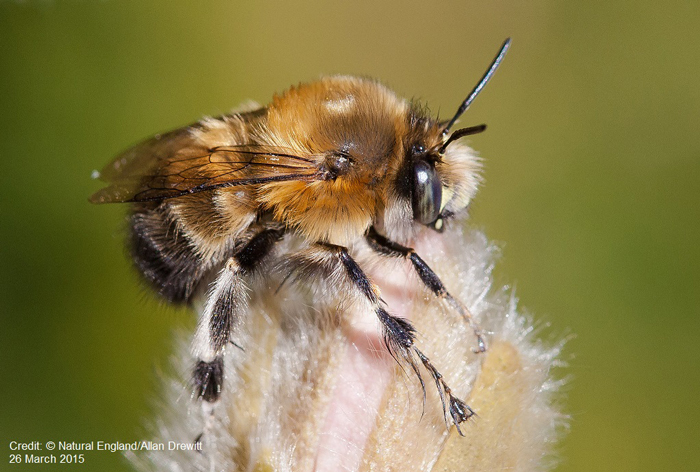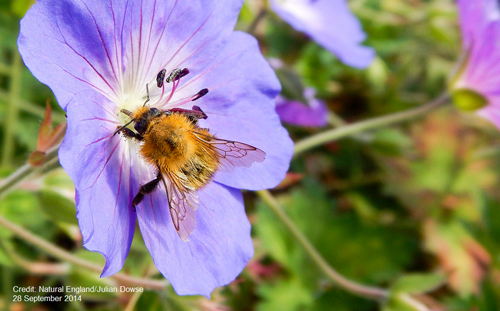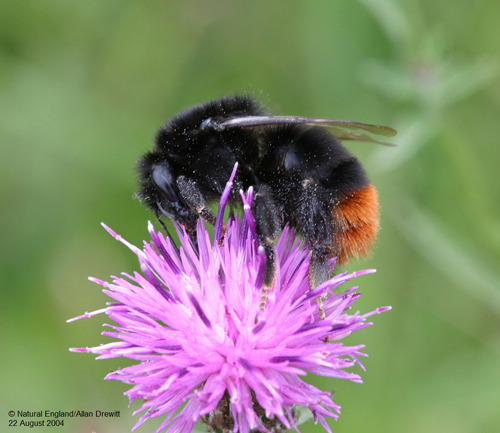Simple things to help bees
Planting bee-friendly flowers and cutting grass less often are among five simple steps the public are being urged to take to help our precious pollinators thrive.
Bees’ Needs Week, (starting Monday 11th July, 2016) in partnership with organisations including Friends of the Earth, the Bumblebee Conservation Trust and Royal Botanic Gardens Kew, sets out five simple actions everyone can take to give pollinators food and a home.
Pollinating insects are essential to maintain the exciting variety of plants and wildlife in the UK and play a vital role in our food production. Research estimates their value to crops at approximately £600 million due to improved productivity.
The campaign calls for green-fingered growers, from window box gardeners to farmers, to act now to protect the 1,500 species of insects that pollinate plants in the UK, including bumble bees, honey bees, solitary bees, hoverflies, beetles, butterflies and moths.
Speaking ahead of Bees’ Needs Week, Defra’s Lords spokesman, Lord Gardiner of Kimble, pointed out that it was clear we cared about bees but we now needed to make sure we translate that concern into real action to protect our precious pollinators: “Everyone can play their part to ensure bees have food and a home, from urban window to gardeners to farmers protecting the wildlife around their fields,” he said. “You do not have to be an expert gardener to make a difference: our Bees’ Needs Campaign sets out five simple actions we can all make to help pollinators thrive, like cutting grass less often or planting pollinator-friendly flowers.”
The five simple steps are:
*grow more flowers, shrubs and trees rich in nectar and pollen
*leave patches of land to grow wild
* cut grass less often
* avoid disturbing or destroying nesting or hibernating insects
* think carefully about whether to use pesticides.
With summer just around the corner, DefraUK has set a holiday challenge for schoolchildren to build a bee hotel to provide home for some 250 species of solitary bee that nest in hollow plant stems and crumbling buildings. They have issued a special video to help children become involved: http://www.youtube.com/DefraUK
Stephen Trotter, Director for The Wildlife Trusts England, points out that Bees’ Needs Week is a great way of doing something positive for this important group of insects: “Bees are fascinating and beautiful in their own right and they also do lots of work that benefits people, for free. There’s much more to bees than making honey. I’ll be building a bee hotel but whatever you do, everyone can make a real difference to the future of these charming animals.”
Bees’ Needs Week forms part of the wider National Pollinator Strategy launched by Defra in 2014. Since the launch £65,000 has been awarded through the Landscapes for Wild Pollinators Initiative to three important projects helping farmers and landowners create and protect pollinator-friendly habitats.
Photo credits: All photographs © Natural England. Credits: Banner; Hairy-footed bumble bee, credit Allan Drewitt, Upper middle: Bee on flower, credit Julian Dowse; lower middle: Red-tailed bumblebee, credit Allan Drewitt.




